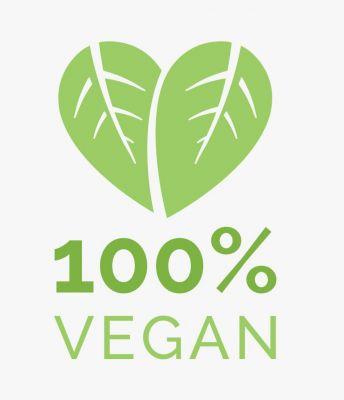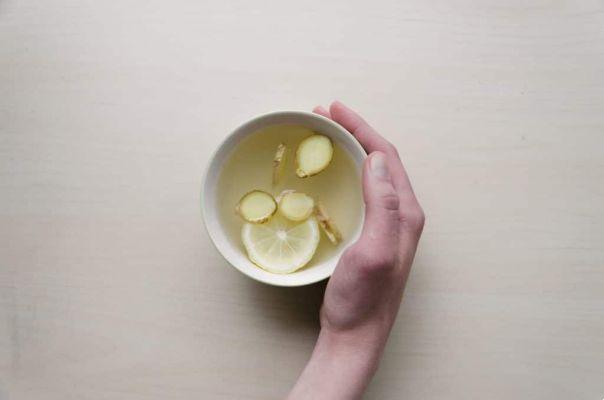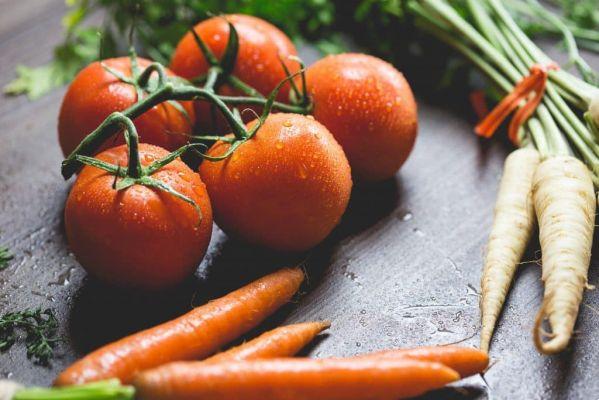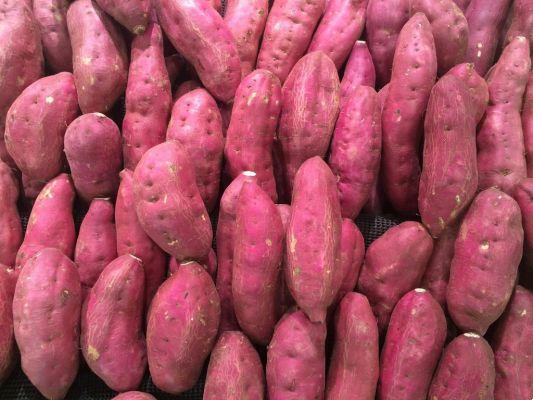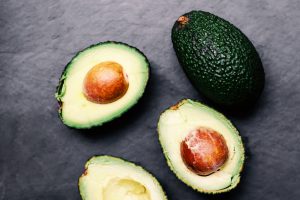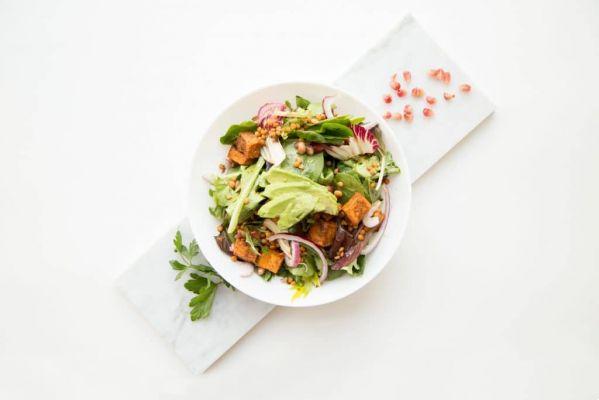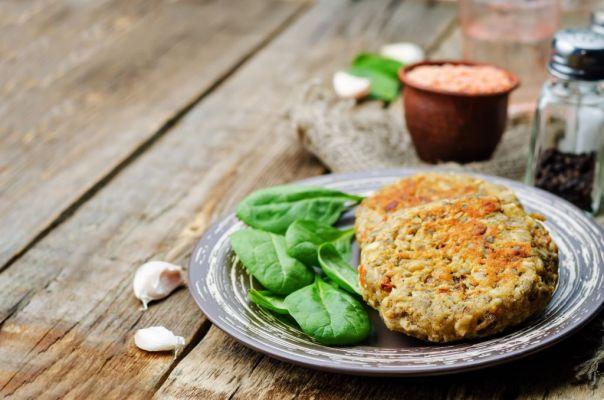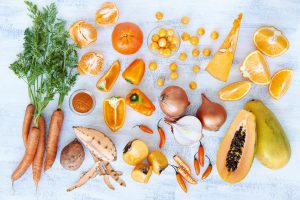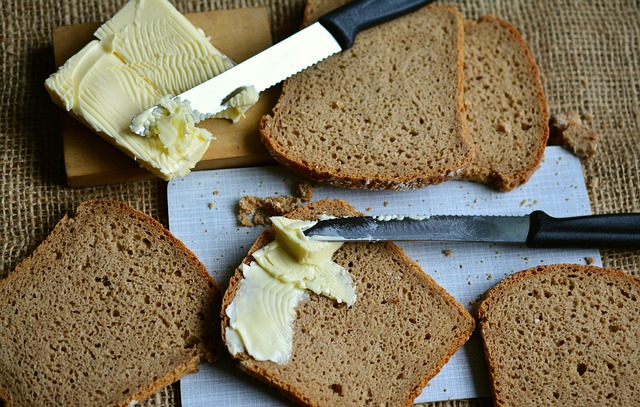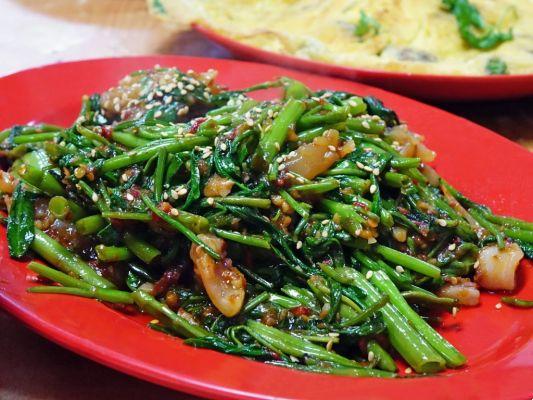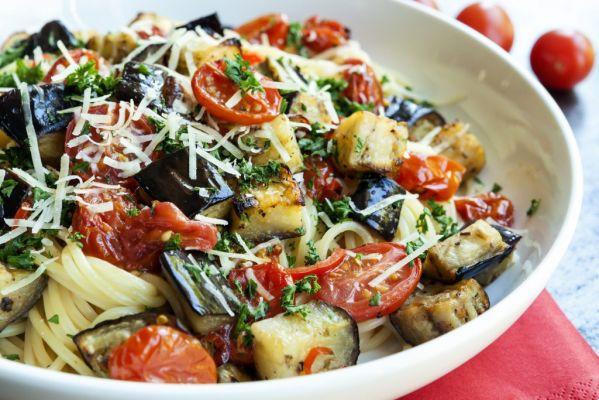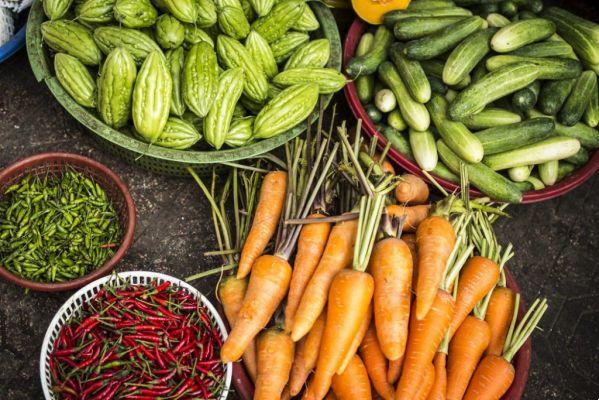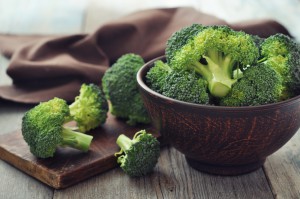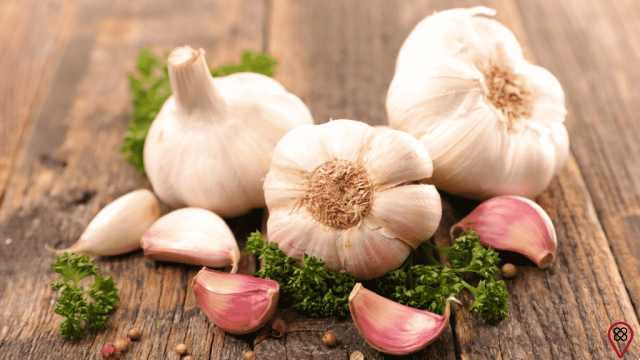Pregnancy is a time that many women look forward to. When she finally confirms herself, the expectant mother has many doubts about food, but one thing is for sure, she knows that she will need to make some changes. Now, when a vegetarian woman reveals she's pregnant, she's the target of puzzled looks. The most uninformed claim that this harms the baby. Others make a radical campaign in order to convince the pregnant woman to change her diet. One of the main arguments is that now she needs to “eat for two”. Pregnant women don't need to "eat for two". After the 3rd month, an increase of 300 calories occurs. This addition is controlled with a nutrition professional.
Vegetarian women do not need to give up this diet. It is suitable for all phases. According to nutritionist Susan Levin, a member of the Responsible Medicine Physicians Committee, vegetarianism has numerous benefits: it protects women against excess hormones and toxins present in meat, fish and dairy products. Folic acid (vitamin B9) found in leafy greens reduces the risk of malformation of the baby's neural tube by 50%. In women following this diet, the levels of this vitamin are higher. Another entity that attests to the benefits of this eating habit is the American Dietetic Association, the largest body of dietitians and nutrition professionals in the world.
Vegetarianism is low in cholesterol. Pregnant women who adhere to this diet are at less risk of having hypertension, type 2 diabetes and cardiovascular disease. These diseases lead to preeclampsia and gestational diabetes. Such diseases, in extreme cases, make pregnant women stay hospitalized. Unfortunately, some women who go through this lose their lives.
Despite the advantages, few doctors are able to guide pregnant women who adhere to this diet. Although the diet of vegetarian mothers-to-be is medically approved, they need to be advised by a nutrologist (a doctor who sought nutrition expertise) or a nutritionist. The professional will be responsible for adapting the vegetarian menu to the dietary needs of pregnancy. Prescription supplements (folic acid, vitamin B12 and calcium) cannot be ignored, as they supply deficiencies that always arise during pregnancy, due to poor diet or absorption difficulties, emphasizes obstetrician Mary Uchiyama Nakamura, from the Federal University of Sao Paulo.
The vegetarian pregnant menu revolves around folic acid, zinc, vitamin C, iron, calcium, omega 3, vitamin B12 and protein. See which foods are rich in these substances:
Folic acid
Prescribed for women who wish to become pregnant and in the first trimester. Protects the fetus from neurological deficiencies such as spina bifida. It is found in green leafy vegetables, walnuts, oranges, avocados and whole grains.
Zinc
It balances metabolism, hormone production and keeps the immune system healthy. Zinc also protects babies from severe diarrhea in the first year of life. It is present in pumpkin seeds, sesame seeds, wheat germ and eggs. In some cases, the nutritionist may recommend zinc supplementation (15 mg/day).
Vitamin C:
Responsible for making iron more soluble. Vitamin C is found in green vegetables, tomatoes, broccoli and cantaloupe.
Iron
Prevents anemia, avoiding the risks of premature birth, low oxygenation and nutrition of the fetus. Dark leafy vegetables, beans, lentils, peas and chickpeas are the biggest sources of iron. The required amount of iron is 15%. For coffee-loving moms-to-be, a warning, caffeine interferes with iron absorption.
To prepare beans and other legumes, you need to soak them the night before. Cooking is done with new water. This care reduces the incidence of phytate, a substance that impairs the absorption of iron and zinc.
Calcium
All pregnant women should ingest 1500 mg of calcium. The amount is twice that of a woman who is not pregnant.
Calcium decreases the incidence of preeclampsia, regulates blood clotting and the transfer of nutrients to the fetus. Kale, broccoli, dark vegetables, cabbage, sunflower seeds, dried figs and sesame are sources of calcium. The mineral can also be found in tofu (soy-based cheese), soy milk, sardines and manjuba. The consumption of these is important during the breastfeeding period.
Omega 3
It regulates metabolism, cardiovascular functioning and blood pressure. It also protects against inflammation. Prevents pre-eclampsia and postpartum depression. It is found in deep water fish such as tuna, cod and sardines. Arugula, chestnuts and walnuts are other sources of Omega 3.
Vitamin B12
Responsible for keeping red blood cells healthy. Prevents and fights gestational anemia. Found in cheese, milk, eggs, brewer's yeast and seaweed. Generally, vitamin B12 levels in vegetarians are lower. Vegetarian pregnant women need supplementation of this vitamin. The dose recommended by doctors is 2,0 mg/day.
Protein
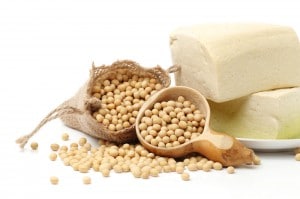 It must be consumed throughout pregnancy. The protein favors the development of the fetus and the placenta. By increasing the consumption of products of plant origin, such as pulses, soy milk, tofu, tempeh (originating from Southeast Asia) and seitan (derived from a wheat protein called gluten), pregnant women who are vegetarians can reach the needed protein.
It must be consumed throughout pregnancy. The protein favors the development of the fetus and the placenta. By increasing the consumption of products of plant origin, such as pulses, soy milk, tofu, tempeh (originating from Southeast Asia) and seitan (derived from a wheat protein called gluten), pregnant women who are vegetarians can reach the needed protein.
Vitamin D supplementation
When it comes to vitamin supplementation for pregnant women, there is a lot of talk about replacing folic acid (or vitamin B9) and iron. However, vitamin D is important because it regulates calcium, and consequently helps in the development and maintenance of bones.
It can be prescribed for women who cannot absorb vitamin D from fortified milk in their diet. That's 10 mg of vitamin D a day, especially on cold days. In Southeast Asian women, vitamin D lowers the risk of neonatal hypocalcemia (too little calcium in the blood).
| For those who are still not convinced that the vegetarian diet does not pose risks to the baby, nutritionist Paula Gandin, specialized in vegetarian food, says that there are no health differences between the babies of vegetarian and non-vegetarian mothers. What happens is that meatless eating is still surrounded by myths, as it is not widely discussed. The prejudice against those who adopt a different dietary pattern from what is considered “normal” comes from the lack of knowledge on the subject. Therefore, the criticism of pregnant vegetarians makes no sense. They need nutritional monitoring and supplementation with iron, folic acid and vitamin B12. We believe that no vegetarian woman would be able to put her baby's health at risk in order to defend her convictions. |
Another advantage of the vegetarian diet is to make digestion better and faster. The kidneys also work more efficiently. But, it is important to emphasize that vegetarianism should not be adopted overnight, especially during pregnancy. For women who have changed their eating habits before pregnancy, who are followed up and follow the nutritionist's or nutritionist's guidelines, we present a menu tip for each trimester of pregnancy:
First quarter
- Breakfast
1 glass of 150 ml of orange juice
1 cup soy milk fortified with calcium and vitamin B12
2 slices of wholemeal bread with iron-fortified margarine
- Morning snack
Pear, Apple or Banana
- Lunch
5 tablespoons of brown rice
1 medium shell of lentils
4 heaping tablespoons of sauteed green beans
Spinach and raw carrot salad
1 glass of 200 ml of orange juice
- Afternoon snack
tea without sugar
2 pieces of wholemeal toast with fruit jam
– Supper
Soy milk fortified with calcium and vitamin B12
second quarter
- Breakfast
Soy milk fortified with calcium and vitamin B12
2 slices of wholemeal bread
1 dessert spoon of honey
Half papaya papaya
- Morning snack
Soy yogurt with a dessert spoon of ground flaxseeds (mash flaxseeds only when using)
- Lunch
6 tablespoons of brown rice
1 medium shell of beans
80 grams of tofu
Tomato, broccoli and bell pepper salad
1 glass of 200 ml of grape juice (without preservatives and additives)
- Afternoon snack
– Soy milk fortified with calcium and vitamin B12
– 4 small pieces of wholemeal cookies
- Dinner
8 tablespoons whole-wheat pasta with tomato sauce
4 tablespoons of sauteed okra
Black-eyed Bean, Cucumber and Arugula Salad
Tangerine
– Supper
Soy milk fortified with calcium and vitamin B12
3 pieces of wholegrain crackers
Third semester
- Breakfast
Soy milk fortified with calcium and vitamin B12
2 slices of wholemeal bread with 1 tablespoon of iron-fortified butter
1 small persimmon
- Morning snack
1 tablespoon mixed Brazil nuts and walnuts
2 units of dried apricot
- Lunch
 6 tablespoons of brown rice
6 tablespoons of brown rice
1 medium shell of lentils
Tomato, carrot and kale salad
4 tablespoons of sautéed eggplant
- Afternoon snack
1 unit of skimmed soy yogurt
2 tablespoons of oats
1 banana
- Dinner
6 tablespoons of brown rice
1 medium shell of beans
3 or 4 tablespoons of soy beef stroganoff
Beetroot Salad with Parsley and Onion
4 tablespoons of cooked cauliflower
Tangerine
– Supper
1 cup soy milk fortified with calcium and vitamin B12
2 pieces of wholemeal wafer
Observation: This menu is just a suggestion. Do not make any changes to your diet, whether vegetarian or not, without your doctor's knowledge.
To help with nutrient intake, juices are good alternatives. Check out this recipe regulating juice good for pregnant or breastfeeding women:
1 carrot
1 peeled apple
2 celery stalks
sprigs of mint
Juice of a lemon
1/2 glass of mineral water
How to make: Blend the ingredients in a blender and sweeten with algave extract. Algave is an organic food. Sweeten more than sugar. It has a low glycemic index (it turns into glucose more slowly). It has a neutral taste. Its texture is smoother than that of honey. Gluten and lactose free.
Whether for religious reasons or out of respect for animals, the vegetarian diet is gaining more and more followers. Vegetarian women have scientific support to maintain this eating habit during pregnancy. It is essential to follow up with a nutritionist or nutritionist. The menu adopted by the mother is adjusted to this phase. Vegetarian pregnant women, as well as those who eat meat, need to ingest vitamin supplementation in order to supply nutritional deficiencies inherent to pregnancy.
The matter is very complex, because the mother's diet reflects on the baby. The lack of vitamins and minerals causes anemia in pregnant women, in addition to causing the malformation of the fetus, low oxygenation and premature births. By tracing this panorama about vegetarianism and pregnancy, we hope to have contributed to future mothers. In cases of doubt, always look for a nutrition professional. Much more important than proving that your eating habits are right, think only of your baby. Take the case of Hollywood actress Natalie Portman. Adept at vegetarianism, she gave up the diet during pregnancy. The actress also advised future mothers not to be intransigent and to adopt such an attitude, if the doctor advises.
If your family and friends continue to pressure you to eat meat, or at least a little fish, don't be angry. You have medical advice, follow exactly what health professionals indicate, especially the intake of supplements. So go ahead with your food convictions. Your beautiful and healthy baby will be the best answer to those who still insist on not respecting the decisions of others.
- Text written by Sumaia Santana from the Eu Sem Fronteiras Team



